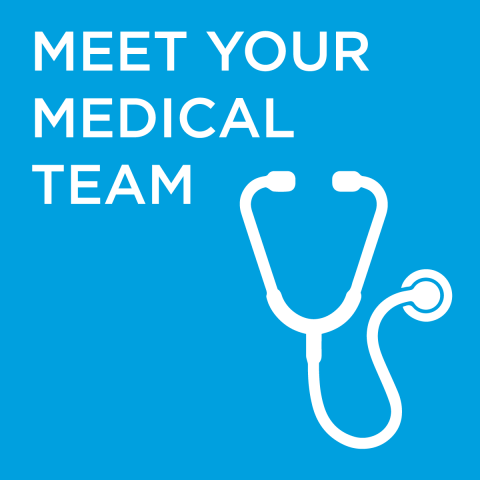Dr. Donington is Professor and Chief of the Section of General Thoracic Surgery at University of Chicago Medicine. Her clinical and interests focus on the early diagnosis and treatment of non-small cell lung cancer. Areas of expertise include the use of multimodality therapy for thoracic malignancies, treatment options for high risk patients with early stage lung cancer and lung cancer in women. She is the surgical chair for the thoracic oncology section of NRG Oncology Group. She is the immediate past president of the Women in Thoracic Surgery and the New York Society for Thoracic Surgery.
In a few sentences, can you explain the role of a thoracic surgeon?
Thoracic surgeons can participate in all stages of lung cancer care. Surgery is the primary treatment of choice for stage I and II lung cancer. We perform biopsies for diagnosis and staging for stage III and IV disease and participate as part of a multidisciplinary team in select patients with stage III and IV NSLC.
Is your role patient-facing? [how much/often do you interact with patients]
I interact with patients every day and in many settings: in the outpatient clinic, on the hospital wards, and in the operating room. It is a unique and special relationship.
Why is it important for someone affected by lung cancer to have a thoracic surgeon on their medical team?
Lots of different kinds of surgeons do lung resections, but only general thoracic surgeons do this primarily; therefore, we tend to have more advanced techniques and tend to have a better understanding of the science and treatment options for lung cancer, as opposed to general surgeons or cardiac surgeons who only treat lung cancer as a small part of what they do. Although early stage disease is where thoracic surgeons play the greatest role, a growing number of patients with stage III and IV disease undergo resection, so always nice to have a team with a unified approach to care.
What’s the most common misconception patients have about thoracic surgeons / what thoracic surgeons do?
I think they assume all thoracic surgeons are men and that everything we do requires them to have their “chest cracked open.” Most of my operations are done minimally invasively through three small incisions. Open surgery is used less and less for lung cancer.
What are some tips you have for patients and caregivers to help them work better with their thoracic surgeon or healthcare provider in general?
I think one of the most important things is to ask questions. All of this is new, and can be quite confusing. Patients should never feel bad about asking questions or asking for further clarification. A patient engaged in the care and treatment decision is so important.
What is a question you wish more patients would ask?
I would like my patients to ask everything. The two most important in my mind are why and what are the risks. I do invasive procedures and knowing the risks in advance is so important.
What type of patient education and support resources have you found most useful? What type of education and resources do you recommend to patients and caregivers?
I recommend a lot of the advocacy websites, such as LUNGevity, Lung Cancer Research Foundation, and American Cancer Society. They are all really helpful.
In your own opinion, what is a patient’s “secret weapon”?
They can and should be a strong advocate for their own care. Patients need to be engaged in treatment decisions; this is their most important weapon.
What motivated you to become a thoracic surgeon?
I love surgery and surgery in the chest is the absolute coolest kind of surgery. I am also fascinated by oncologic research; there are so many questions not yet answered. We have come so far and made incredible strides over the past 50 years, but so much more to do, especially in lung cancer. Lung cancer surgery was my destiny.
What do you find most rewarding about your job?
I love my patients and feel so fortunate to meet them and work with them at such a vulnerable time and scary time and to see them and their families through that. It is incredibly rewarding. As a thoracic surgeon, I am very fortunate and get to cure a lot of patients, what could be greater?
What role do you think advocacy plays or can play in your field?
Advocacy has three main roles in my opinion: awareness to the community, raising research dollars, and educating and empowering patients and their families. These are huge and important jobs.
What is one piece of advice you would give to someone newly diagnosed with lung cancer?
Do not lose hope, educate yourself, and engage in your care.
What gives you hope for people living with lung cancer?
I am given hope because there are more and more people living after a lung cancer diagnosis. Survivors used to be so few, and now we have many and they are vocal. They are reducing stigma and raising awareness and research dollars. This is as important as immunotherapy and all our recent scientific advances.
 Meet Your Medical Team blog series gives lung cancer patients insight into the role and importance of each medical specialist that they encounter through their diagnosis and treatment. These interviews are intended to help patients communicate better with their healthcare providers and become better advocates in their own care.
Meet Your Medical Team blog series gives lung cancer patients insight into the role and importance of each medical specialist that they encounter through their diagnosis and treatment. These interviews are intended to help patients communicate better with their healthcare providers and become better advocates in their own care.
Learn more about the different types of medical experts that make up your medical team in the Lung Cancer 101 section of LUNGevity’s website.
